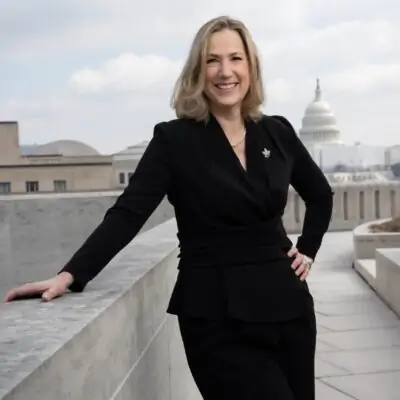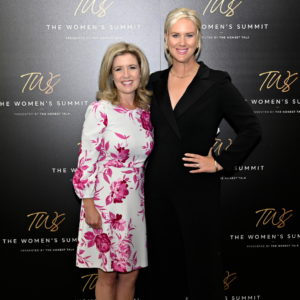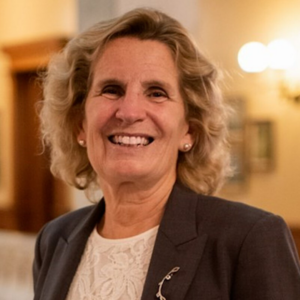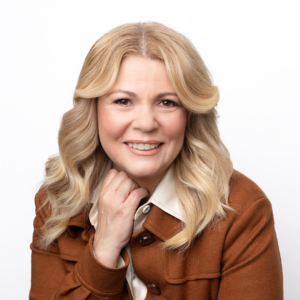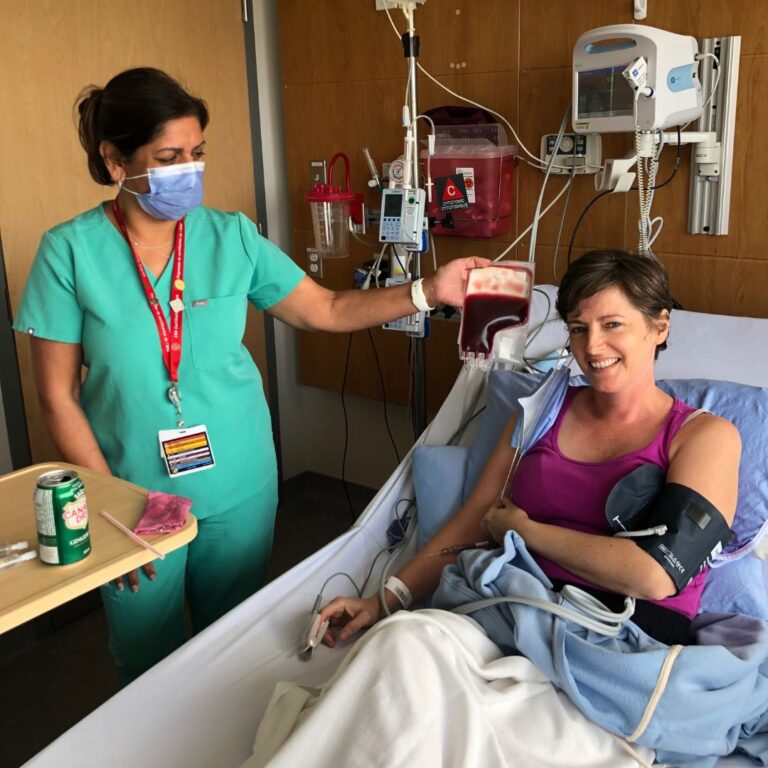Dr. Katharine Smart – Former President of the Canadian Medical Association and child and youth advocate
Dr. Katharine Smart is a former President of the Canadian Medical Association (CMA) and a tireless and vocal advocate for children and youth, access to vaccines, and strengthening the Canadian healthcare system. Prior to her current role, she was a pediatric emergency medicine physician at the Alberta Children’s Hospital and Royal Children’s Hospital in Melbourne, Australia.
In this episode of The Honest Talk, Jen and Catherine speak with Dr. Katharine Smart about her approach to leadership and why advocacy is so important to her. They also dive into her interest in global health, her experience working in Northern and remote communities, her role as a physician in Indigenous reconciliation, how she handled hateful online remarks for being a strong advocate for vaccines, and so much more.
Note: This transcript has been edited for clarity and length.
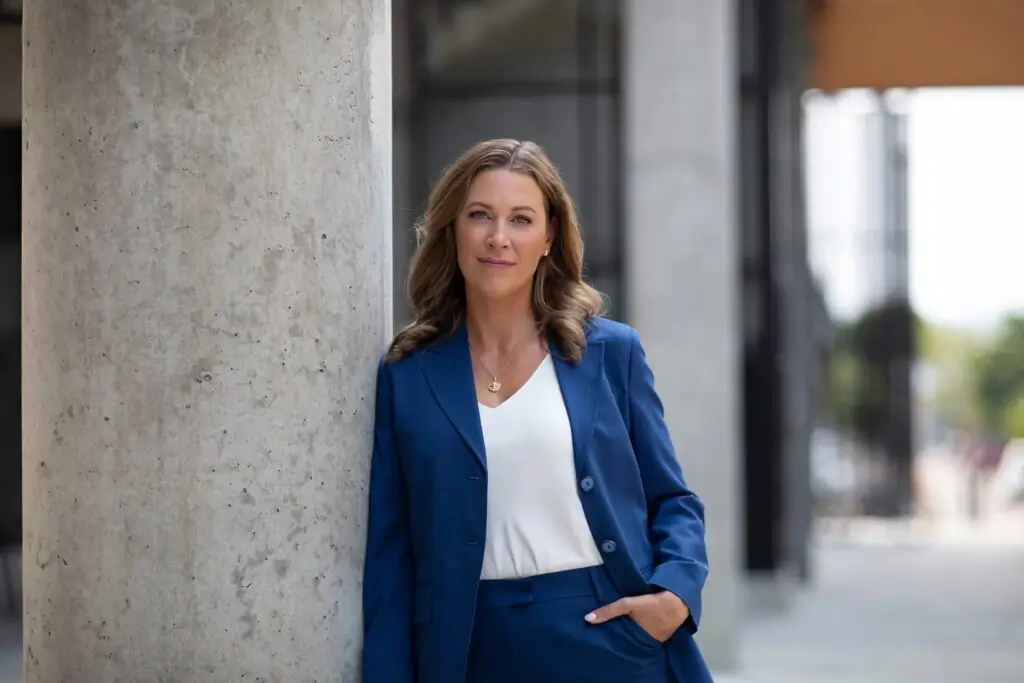
Catherine Clark: Congratulations on being named as President of the Canadian Medical Association this past August, it’s a pretty unprecedented time to be in this role. You have a global pandemic to deal with. It’s calling on health leadership like never before. What has this been like for you? How are you doing?
Dr. Katharine Smart: When I first put my name in to become president of the CMA, and when I found out I’d been elected to the position of President-elect, it was literally a month before the global pandemic was announced. So certainly what I was anticipating and where we find ourselves has been very different.
But I’m doing well. I’m really grateful for the opportunity to be in this role at this time and to try to help Canadians through what’s been really an incredible time in our history. And I feel grateful for all the people that look to me for my thoughts and opinions and for the opportunity to try to get people good information to make the best decisions for themselves and their families.
The importance of doing things for others
Catherine Clark: I read an article about when you were a medical student at UBC, and you pushed for more real-life experiences outside of the lecture halls so that students knew what was happening beyond the four walls of the classroom and that they could, in effect, develop real-world compassion. That was advocacy and it resulted in actual changes to the program at your med school. What gives you that drive? Why is advocacy so important to you?
Dr. Katharine Smart: It’s always been at the core of my personality. I’ve always been outspoken. I’ve always been opinionated. I’ve always had this sense of wanting to seek what’s right or justice and trying to pursue those things. I grew up in a family where there was a lot of talk about the importance of doing things for other people. Both my parents were very active in our community and really cared deeply about doing things to help others. My dad used to always say to me when I was growing up, “Katharine, you’re always happiest when you’re doing something for someone else.” And I have found that to be true. I reflect on that often.
I think when we pursue purpose over happiness as an endpoint, I think we find happiness along the way. And advocacy for me has been a way of doing that.
Dr. Katharine Smart
Decision to work in the Yukon
Jennifer Stewart: Speaking of purpose, you’re drawn to Canada’s North. You’re a proud advocate of the North. What attracts you to rural medicine and to northern communities and serving in areas that are underrepresented by physicians?
Dr. Katharine Smart: I think a variety of things. When I was in my training, I had the opportunity to spend a month in Nunavut, and that really turned me on to the idea of working in Canada’s north. Also, as a medical student, I was very interested in global health.
And I think as I progressed in my training, I also really realized there was a lot of very marginalized and underserved populations here in Canada and that that same passion that drove that interest could be applied here as well. So, I think those two things came together for me, and I felt that was an area where I could make a difference.
Advice on how to support kids and families
Catherine Clark: How do you support kids in your community and through your professional role to try and ensure that coming out of this pandemic, kids are okay?
Dr. Katharine Smart: I think there’s several things that are really important. One is that basic advocacy around vaccination and making sure that families have that right information, because so much of children and youth getting their lives back is going to be being vaccinated, because it’s so impactful in terms of reducing the risk of severe illness. Hopefully we can get those vaccination rates as high as possible. That’s a really practical thing that can help people in terms of some of the more complex issues for us.
I think it’s really been about making sure that our services are uninterrupted, that we are available to provide health support to our patients and their families and that we are flexible about what that looks like. When this pandemic started, we literally pivoted our clinic overnight to virtual when we were in those initial lockdowns, and we weren’t able to see people in person unless it was really needed. I was really proud of that. We didn’t cancel a single appointment; we just went over virtual overnight. We pivoted to that. And since then, we’ve been very flexible in how we see people so that people can be seen and be comfortable.
And the other piece, of course, is being available to the community resources here to liaise with them around decision-making around health to make sure that they know how to access us, to get kids and youth into our clinic as needed, to make sure that they feel supported in the work that they’re doing, continuing our outreach to communities. Those are all the things we’ve been trying to do to make sure that people are getting the health support they need to get through this really very difficult time.
The darker side of the virtual world
Jennifer Stewart: Speaking of the darker side of the virtual world we live in, you have been trolled online – like so many strong women – for being a strong advocate for vaccines and our healthcare system at large. But your experience specifically went even further: your family was threatened, as were you. What was this experience like for you? And how do we change this toxic online world that we operate in sometimes so that more women in particular can speak up and be vocal about issues that that are important?
Dr. Katharine Smart: This is another piece of life that’s been so different in the pandemic: how many physicians, nurses, and scientists have had to go online and share information in a real effort to combat misinformation. We’ve taken on a very public-facing role that’s maybe different than what we’re used to.
And in a lot of ways, I think that’s been incredibly impactful, being able to counter misinformation, being able to make sure people have accurate information, being able to promote vaccination. I think so many of us being online has really contributed to the success of those things in Canada, which has been amazing, but you’re right, it has come with that darker side.
I have received threats. Most of them, of course, are anonymous, and from people I have no idea who they are. And that’s not pleasant. But I think we all recognize this is an unfortunate aspect of where we are. Some of the more direct threats where people are saying they’re following you or watching you – that’s not pleasant by any means. But I think of all my other colleagues who have had much worse things happen to them.
They’ve been physically assaulted, physically threatened, had really serious threats made. My mind goes to that and what we can do to protect the profession as a whole, but I also recognize this is not unique to us as healthcare professionals. Look what’s happening to politicians, to journalists. I feel like anyone who’s out there right now in the public eye is being subjected to this. And it’s really a new aspect of what’s happening in our society that we need to think carefully about, because, of course, free speech is very important. And people being able to have more than one opinion and discuss things is critical to our democracy. But it’s kind of taking this dark side where people are trying to use it to intimidate people to harass people into silence, and that’s dangerous.
What we’re doing at the CMA is we are bringing these issues forward as we did to the government. And fortunately, now we’ve seen the passage of Bill C3, which is really encouraging. We’re continuing to work with social media companies around how we create safer online spaces, not only for those of us trying to use them to share information, but also for the public who’s using it as a way to get their information. We’ve had good reception there, and that’s something I’m optimistic about. I think we can continue to improve. One of the things I’ve had to learn is you do have to grow a thicker skin, work on your own mindset, just take it for what it is and not let it impact you more than it should.
Catherine Clark: Who do you lean on for support in those tough times?
Dr. Katharine Smart: I am really fortunate I’ve got an amazing circle of friends and family. I have many strong female friends who are just absolutely incredible women doing all sorts of things in their lives that are impressive and they are always a landing ground to vent to or just to get that support or cheerleading, which is amazing. My family’s totally behind me. It’s really about surrounding yourself with the people that matter and realizing that in your life there really only is a few people whose opinions of you are important. And you have to remember who those people are.
Jennifer Stewart: You are a mom; you are a wife; you’re balancing a ton of demands and doing it very well. What do you do to recharge your batteries?
Dr. Katharine Smart: I’m a hardcore Peloton addict. When I moved to the North, I was optimistic that I was going to become a northern outdoors athlete. That vision failed. I have injured myself so many times trying to do these different sports and I’ve realized indoor stationary biking is my sport. I have my Peloton, I’m in a women physician’s writing group, and I do different challenges on there. And that just really keeps me kind of going. Regular exercise really helps my mood. It helps take the edge off any anxiety or frustrations. You feel so good to do something for yourself.
Also, I enjoy relaxing with my family. We just finished watching The Modern Family. The kids like that. Every night, we’d watch one together on our big couch as a family with our dog. And that was fun. And getting outside when it’s possible and enjoying the beauty of the Yukon is great. And then, of course, just making time to connect with friends. So those for me are the main things.
Medicine’s role in reconciliation
Catherine Clark: Can we circle back to something that you said when you were talking about working in Northern and remote communities, especially early in your career? What role do you think that medicine can play in reconciliation?
Dr. Katharine Smart: I think medicine is hugely important in reconciliation, particularly when you consider the ongoing racism that exists in our health systems and the importance of changing that to make healthcare safe for Indigenous peoples. I think we cannot have reconciliation in this country until all our shared spaces and services are safe for all Canadians.
I’ve been really grateful here for the opportunity to work with a group called Council of Yukon First Nations, which is an umbrella organization for 12 of our 14 First Nations, and really learn from them about what it’s been like for their citizens to access the health care system, where the barriers have been, what some of the negative experiences have been, and how we can work differently to make those experiences more positive so that children and youth and families can feel safe accessing care. I feel that it’s critically important because if we’re not doing that, then we’re not actually helping people. We’re not learning together about how to meet their needs.
Jennifer Stewart: How do you hope your term as the president of the Canadian Medical Association is remembered?
Dr. Katharine Smart: I hope people would remember me as someone who was an advocate, who spoke out on behalf of the profession and of patients and other healthcare providers, with integrity, with honesty, who was not afraid to take on difficult topics, and was here because I am committed to a better future of health for everybody.

